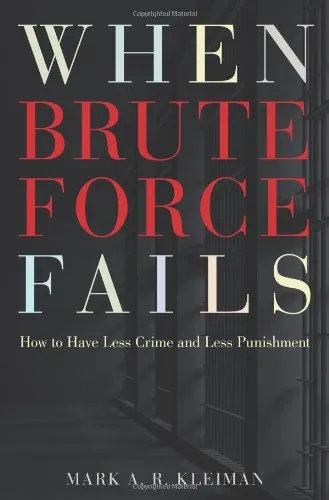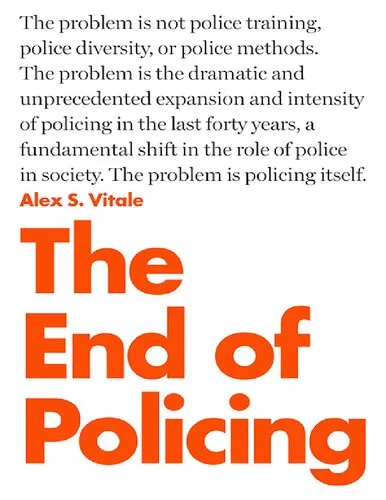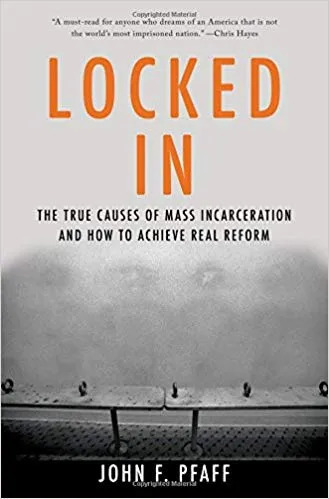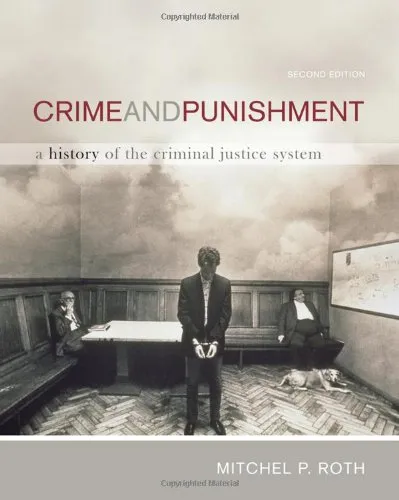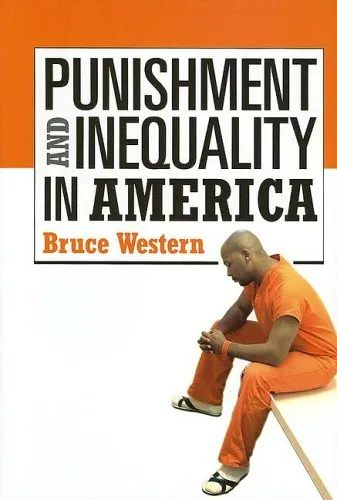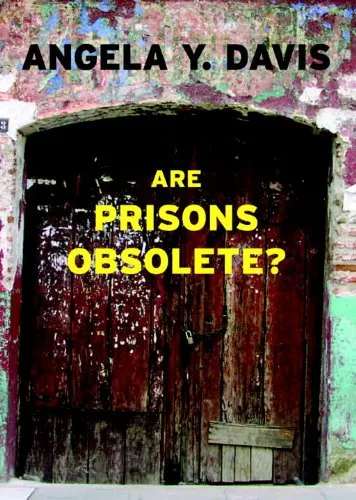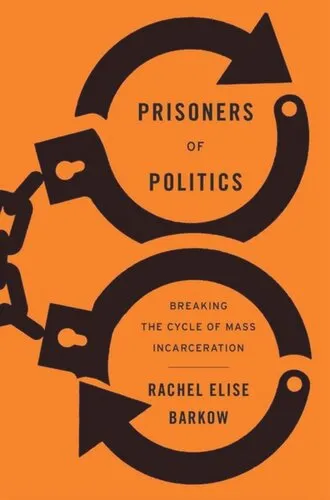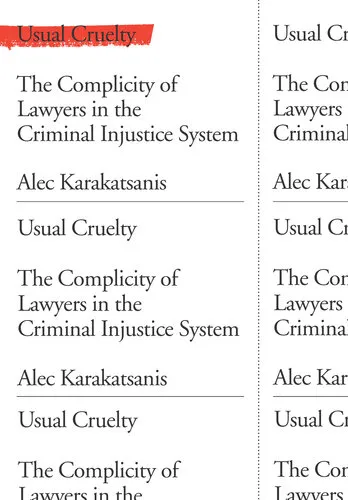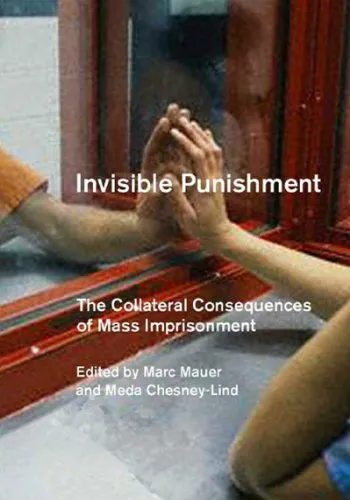When Brute Force Fails: How to Have Less Crime and Less Punishment
4.1
بر اساس نظر کاربران

شما میتونید سوالاتتون در باره کتاب رو از هوش مصنوعیش بعد از ورود بپرسید
هر دانلود یا پرسش از هوش مصنوعی 2 امتیاز لازم دارد، برای بدست آوردن امتیاز رایگان، به صفحه ی راهنمای امتیازات سر بزنید و یک سری کار ارزشمند انجام بدینکتاب های مرتبط:
Persian Summary
معرفی کتاب "When Brute Force Fails: How to Have Less Crime and Less Punishment"
کتاب "وقتی زور شکست میخورد: چگونه میتوان جرم و مجازات را کاهش داد" یکی از برجستهترین آثار در حوزه جرمشناسی و سیاستهای عمومی است که توسط مارک ای. آر. کلایمن نوشته شده است. در این کتاب، نویسنده به بررسی رویکردهای جایگزین برای کاهش جرم و مجازات میپردازد و استدلال میکند که استفاده صرف از زور و تنبیه شدید نمیتواند به طور کامل به حل مسئله جرم کمک کند.
خلاصهای تفصیلی از کتاب
در تقابل با رویکردهای سنتی که بر پایه تهدید و زور متمرکزند، کلایمن پیشنهاد میکند که روشهای هوشمندانهتری وجود دارد که میتوانند ضمن کاهش جرم، به کاهش نرخ مجازات نیز بپردازند. او با استفاده از مثالهای واقعی و آمارها، نشان میدهد که سیاستهای مبتنی بر شفافیت، تحرکپذیری و ارتباط مستمر بین مجرمان و مراجع قانونی، میتواند نتایج بهتری به همراه داشته باشد.
یکی از رویکردهایی که کلایمن به طور خاص بر آن تاکید دارد، استفاده از تکنولوژی و دادهکاوی برای هدایت رفتار مجرمان است. کلایمن به نکاتی همچون اعمال نظارت الکترونیکی و تعیین پاداش و تنبیهات متناسب اشاره میکند که میتواند نقش مهمی در تغییر رفتار مجرمان داشته باشد.
نکات کلیدی
- استفاده از رویکردهای نوین به جای تکیه بر روشهای سنتی برای مقابله با جرم.
- نقش تکنولوژی و دادهکاوی در ایجاد سیستمهای نظارتی موثرتر.
- ضرورت توجه به شفافیت و توانایی پیشبینی برای کاهش مجازات بیرویه.
- تاکید بر ارتباط مستمر بین مجرمان و مراجع قانونی برای هدایت رفتار.
نقلقولهای معروف از کتاب
"در دنیایی که ما بیشتر به استفاده از زور عادت کردهایم، نیروی هوشمندانهتر میتواند نتیجهای بهتر به دست دهد."
"اگر میخواهیم پاداش دهیم یا تنبیه کنیم، باید این کار را به گونهای انجام دهیم که قابل پیشبینی و عملی باشد."
چرا این کتاب مهم است؟
این کتاب با ارائه دیدگاهی جدید و کاربردی، به سیاستگذاران درک عمیقتری از چگونگی کاهش موثر جرم و بهبود سیستمهای قضایی ارائه میدهد. اهمیت کتاب "When Brute Force Fails" در این است که نشان میدهد میتوان به وسیله سیاستهای هوشمند و مبتنی بر داده، نتایجی قابل توجه در زمینه کاهش جرم و مجازات به دست آورد و گامی موثر در ایجاد جامعهای امنتر برداشت.
Welcome to an in-depth introduction to "When Brute Force Fails: How to Have Less Crime and Less Punishment" by Mark A. R. Kleiman, a transformative piece of literature that tackles the pervasive issues within the criminal justice system. This book offers pragmatic solutions for reducing both crime and incarceration by challenging conventional methods and proposing innovative strategies.
Detailed Summary of the Book
The central thesis of "When Brute Force Fails" revolves around the inadequacy of traditional punitive measures in effectively reducing crime rates. Mark A. R. Kleiman delineates the inefficiencies of the existing system, which often applies brute force tactics like lengthy incarcerations without significantly deterring criminal behavior. Instead, Kleiman advocates for a nuanced approach that emphasizes deterrence rather than sheer punishment. By focusing on creating swift, certain, yet mild consequences, the book suggests that it is possible to achieve better compliance with the law, ultimately minimizing the need for harsh penalties.
Throughout the book, Kleiman introduces the concept of "dynamic concentration," where law enforcement resources are strategically allocated to areas with the highest crime rates, creating a concentrated effort that maximizes the impact of preventive measures. Using case studies and empirical evidence, Kleiman underscores the effectiveness of targeted policing and community-based interventions. The book makes a compelling case for policy reforms that not only reduce crime but do so in a manner that is more humane and economically sensible.
Key Takeaways
- Traditional methods of increasing punitive measures often fail to deliver the intended reduction in crime.
- Effective crime reduction can be achieved through strategies that prioritize certain and swift consequences over severity.
- Lesser punitive measures can lead to better outcomes for both individuals and society.
- Dynamic concentration and strategic allocation of resources are crucial for maximizing law enforcement effectiveness.
- Implementing community-based interventions and rehabilitation programs can lead to sustainable crime reduction.
Famous Quotes from the Book
"The criminal justice system has been waging a losing battle against crime for decades, but that doesn't have to be the case if we embrace smarter, evidence-based solutions."
"When punishment is swift and certain, it need not be severe to be effective."
"Reducing both crime and incarceration is not only possible but essential for a fair and just society."
Why This Book Matters
Mark A. R. Kleiman's "When Brute Force Fails" is an essential read for policymakers, law enforcement professionals, and anyone interested in the future of the criminal justice system. It challenges the status quo by demonstrating that more humane and enlightened methods of crime prevention are not only possible but also beneficial. The book's emphasis on evidence-based policies offers a blueprint for reforming a system that too often prioritizes punishment over rehabilitation. At a time when mass incarceration and law enforcement practices are under scrutiny, Kleiman provides a timely and hopeful roadmap for change.
Ultimately, this book matters because it shifts the conversation from punishment to prevention, pushing us to rethink how we enforce laws and rehabilitate offenders. By addressing the root causes of crime and employing strategies that promote social equity, "When Brute Force Fails" serves as a foundational text in the movement toward criminal justice reform. It offers a vision of a system where the goal is not just to punish crime but to prevent it, enhancing both public safety and human dignity.
دانلود رایگان مستقیم
شما میتونید سوالاتتون در باره کتاب رو از هوش مصنوعیش بعد از ورود بپرسید
دسترسی به کتابها از طریق پلتفرمهای قانونی و کتابخانههای عمومی نه تنها از حقوق نویسندگان و ناشران حمایت میکند، بلکه به پایداری فرهنگ کتابخوانی نیز کمک میرساند. پیش از دانلود، لحظهای به بررسی این گزینهها فکر کنید.
این کتاب رو در پلتفرم های دیگه ببینید
WorldCat به شما کمک میکنه تا کتاب ها رو در کتابخانه های سراسر دنیا پیدا کنید
امتیازها، نظرات تخصصی و صحبت ها درباره کتاب را در Goodreads ببینید
کتابهای کمیاب یا دست دوم را در AbeBooks پیدا کنید و بخرید
1482
بازدید4.1
امتیاز0
نظر98%
رضایتنظرات:
4.1
بر اساس 0 نظر کاربران
Questions & Answers
Ask questions about this book or help others by answering
No questions yet. Be the first to ask!
